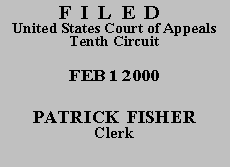

|
TIMOTHY LYNN BARKUS, Petitioner-Appellant, v. STEPHEN KAISER, Respondent-Appellee. |
|
Before BRORBY, KELLY, and
MURPHY, Circuit Judges.
Timothy L. Barkus, proceeding pro se, seeks a certificate of appealability ("COA") so that he can appeal the district court's dismissal of his 28 U.S.C. § 2254 habeas corpus petition. See 28 U.S.C. § 2253(c)(1)(A) (providing that no appeal can be taken from a final order denying relief in a § 2254 proceeding unless the petitioner first obtains a COA). The district court dismissed Barkus' § 2254 petition pursuant to 28 U.S.C. § 2244(d) because the petition was not timely filed. The district court further rejected Barkus' claim that he was entitled to equitable tolling of the limitations period in § 2244(d), concluding that Barkus had not diligently pursued his claims in either state or federal court and that his lack of diligence was not excused by lack of legal training. See Miller v. Marr, 141 F.3d 976, 978 (10th Cir. 1998) (holding that equitable tolling is only appropriate where petitioner has diligently pursued his claims); Williams v. Boone, No. 98-6357, 1999 WL 34856, at *3 (10th Cir. 1999) (unpublished disposition) (collecting cases for proposition that unfamiliarity with the law does not excuse the failure to file a timely habeas petition). In his request for a COA and appellate brief, Barkus does not contest the district court's conclusion that his § 2254 petition was not timely filed. Instead, he simply asserts that the district court erred in refusing to equitably toll the § 2244(d) limitations period.
Barkus is entitled to a COA only upon making a substantial showing of the denial of a constitutional right. See 28 U.S.C. § 2253(c)(2). Barkus can make such a showing by demonstrating that the issues he seeks to raise are debatable among jurist of reason, subject to a different resolution on appeal, or deserving of further proceedings. See Barefoot v. Estelle, 463 U.S. 880, 893 (1983). This court has undertaken a close review of Barkus' application for a COA and appellate brief, the district court's order of dismissal, and the entire record. That close review reveals that the district court's disposition of Barkus' equitable tolling request is not reasonably debatable, subject to a different resolution on appeal, or deserving of further proceedings. Accordingly this court DENIES Barkus' request for a COA for substantially those reasons set out in the district court order of dismissal dated August 25, 1999, and DISMISSES the appeal.
ENTERED FOR THE COURT
Michael R. Murphy
Circuit Judge
*. This order and judgment is not binding precedent, except under the doctrines of law of the case, res judicata and collateral estoppel. The court generally disfavors the citation of orders and judgments; nevertheless, an order and judgment may be cited under the terms and conditions of 10th Cir. R. 36.3.